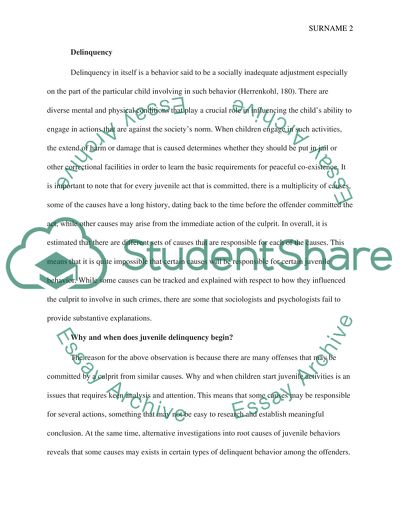Cite this document
(Why and When Does Juvenile Delinquency Begin Essay, n.d.)
Why and When Does Juvenile Delinquency Begin Essay. https://studentshare.org/law/1823185-family-context-weak-family-bonds-lack-of-monitoring-and-supervision-or-domestic-violence-in-relation-to-juvenile-delinquency
Why and When Does Juvenile Delinquency Begin Essay. https://studentshare.org/law/1823185-family-context-weak-family-bonds-lack-of-monitoring-and-supervision-or-domestic-violence-in-relation-to-juvenile-delinquency
(Why and When Does Juvenile Delinquency Begin Essay)
Why and When Does Juvenile Delinquency Begin Essay. https://studentshare.org/law/1823185-family-context-weak-family-bonds-lack-of-monitoring-and-supervision-or-domestic-violence-in-relation-to-juvenile-delinquency.
Why and When Does Juvenile Delinquency Begin Essay. https://studentshare.org/law/1823185-family-context-weak-family-bonds-lack-of-monitoring-and-supervision-or-domestic-violence-in-relation-to-juvenile-delinquency.
“Why and When Does Juvenile Delinquency Begin Essay”. https://studentshare.org/law/1823185-family-context-weak-family-bonds-lack-of-monitoring-and-supervision-or-domestic-violence-in-relation-to-juvenile-delinquency.


